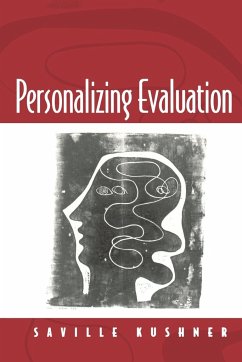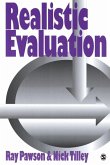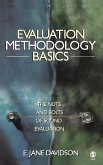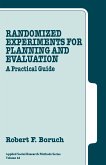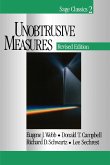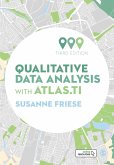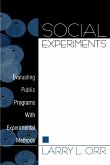Challenges the mainstream approach to program evaluation by inverting the traditional relationship between program and person, this book addresses three principal concerns: learning about evaluation in relation to the experience of doing it; understanding evaluation as a form of personal expression; and using evaluation to comment on people's lives.
`A brilliant piece of work, adroitly fitted to the present state of affairs in program evaluation, devoted to a defensible and under-attended proposition - that we should understand programs through their recipients' - Robert Stake, University of Illinois, Urbana-Champaign `This book makes an important and unique contribution to evaluation' - Michael Quinn Patton, The Union Institute, Minneapolis `In the latest posting from Saville Kushner, he makes reference to "democratic evaluation" and to the importance of evaluators as critics of those in power. There are nuances to his posting that may escape those not familiar with the perspective Kushner and colleagues bring to evaluation. Until now, there has been no easy access to that perspective, especially for American evaluators. Now there is. Saville Kushner has just published a very important book, "Personalizing Evaluation" (SAGE Publications, 2000). His focus is on the experiences of people in programs as a lens for understanding a program. This isn't new. How he does it-and his commitment to keeping that perspective at the center of evaluation-will, I suspect, be new for many. This is the clearest and deepest articulation of "democratic evaluation" yet available to a wide audience, informed by the acute European sensitivity to Politics (big P) and politics (small p) -- and their intersection. Much of evaluation these days (logic models, theories of action, outcomes evaluation) is driven by the need/desire to simplify and bring order to chaos. Saville embraces the chaos. He revels in messiness. He embraces complexities. In so doing, he eschews models, both evaluation models and program models, and stays focused on the experiences of real people struggling with real stuff in real settings. It is messy, difficult, complex, chaotic-and wonderful. He challenges the facile perspectives and bureaucratic imperatives that dominate much of current institutionally-based evaluation practice. Over and over he returns to the people, to the children and teachers and parents, and the realities of their lives in "program settings" as they experience those realities. He elevates their judgments over professional and external judgments. He calls this "personalizing evaluation." Many, I suspect, will see it as a radical approach. If so, it serves to expand our conception of what's possible. The book is beautifully written, full of engaging stories. It is carefully crafted to reveal complexities and, to an unprecedented extent, Saville shares his own foibles and struggles. Where he is uncertain, he says so. He offers doubts and questions, as much as possibilities and perspectives. I don't resonate to all of what Saville advocates, but all of what he advocates challenges me to think anew about what I do and how I do it. This book forces you to get clear about your own evaluation practice and priorities. That, at least, was my experience of the book. In keeping with the perspective Saville offers, I think it would be presumptuous and inappropriate for me, based on just my experience and preferences, to recommend the book. So I'll leave it at that, sharing my experience, and suggesting that, if Saville's Summerhill report here on EvalTalk has intrigued you, you'll find lots more good stories in this new book' - Michael Quinn Patton, The Union Institute, Minneapolis - message to EvalList

